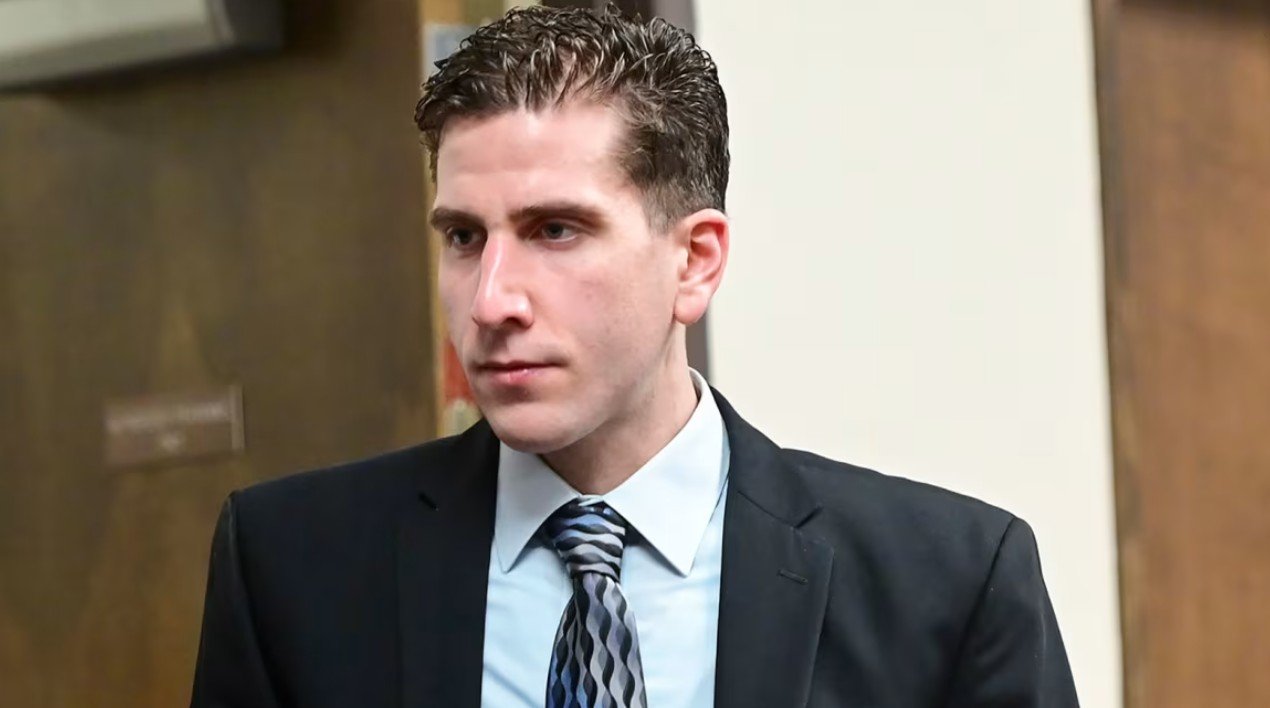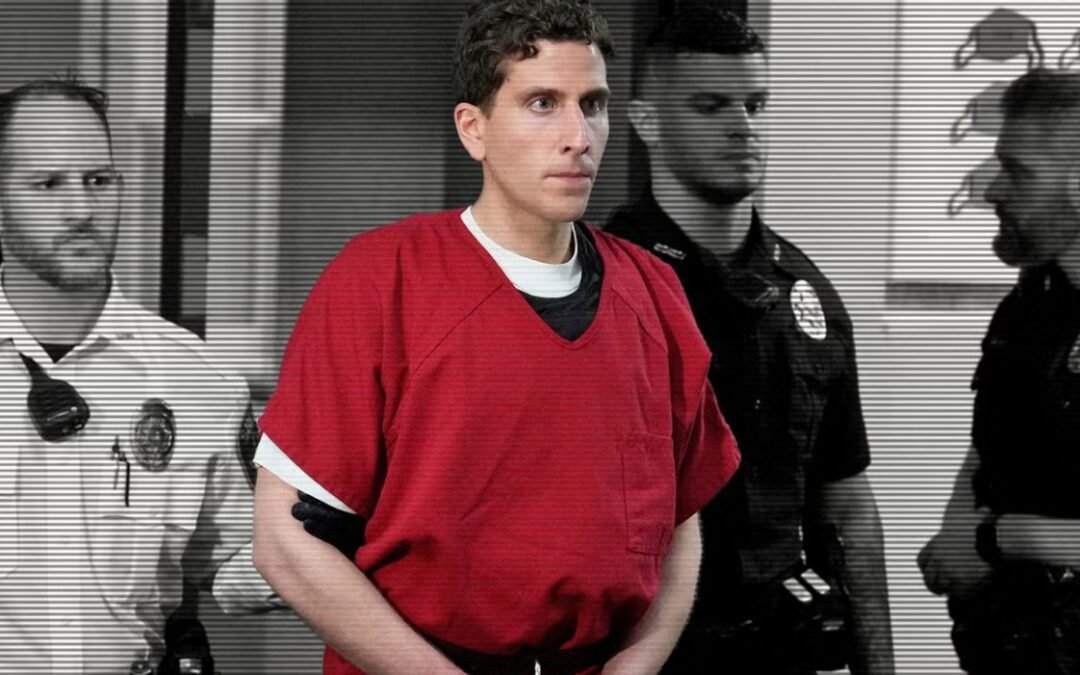
Will Bryan Kohberger Speak at Sentencing?
An Allocution Doesn’t Really Matter
Update: 7/23/2025 As Predicted, Bryan Kohberger did not make an allocution at his sentencing hearing.
Judge Hipler: “
Bryan Kohberger: “I respectfully decline”.
As Bryan Kohberger heads into his sentencing tomorrow, there’s one question buzzing on social media and in comment threads:
Will he finally speak and explain why he did it?
Some even suggest prosecutors should have forced him to give an allocution—an admission of guilt with details about his motives—as part of his plea deal.
But here’s the hard truth: forcing an explanation isn’t how the system works. And even if Kohberger spoke, it wouldn’t give the public the closure they’re craving.
Public Voices Calling for a Forced Statement
The pressure to make Kohberger speak is coming from unexpected places. Howard Blum, who has researched and written about the case extensively, tweeted:
“Steve Goncalves wants Kohberger to be required at sentencing to say names of the 4 people he murdered. I think Goncalves is right and Judge Hippler should insist as prerequisite for sentencing.” – Howard Blum (@HowardBlum)
Former President Donald Trump also weighed in, claiming:
“before Sentencing, I hope the Judge makes Kohberger, at a minimum, explain why he did these horrible murders. There are no explanations, there is no NOTHING. People were shocked that he was able to plea bargain, but the Judge should make him explain what happened.” (@RealDonaldTrump)
Adding to the chorus, families and legal advocates are calling for accountability. The father of one victim, Kaylee Goncalves, bluntly stated the public demands:
“Require a full confession, full accountability… at a bare minimum.”
And local commentator Dennis Hubbs criticized prosecutors for letting Kohberger plead without providing any allocution:
“The victims’ families deserve to know what happened in this horrendous quadruple murder.”
Yet legal experts still maintain: while these demands resonate emotionally, courts aren’t legally equipped—or constitutionally allowed—to oblige.
Why an Allocution Won’t Happen
An allocution is a formal statement a defendant can make at sentencing, usually to express remorse, accept responsibility, or plead for leniency.
If you recall, the plea deal specifically stated that Kohberger cannot ask for leniency. But an allocution is voluntary. The court cannot compel a defendant to explain their motives—or speak at all.
Prosecutors can require a defendant to admit to what they did as part of a plea deal. That’s about establishing the facts. But there’s no legal mechanism to force someone to articulate why.
Doing so would raise serious constitutional concerns:
🔒 5th Amendment rights: Even after a plea, defendants retain some protection against self-incrimination, especially if there are related charges or civil suits.
⚠️ Grounds for appeal: Forcing a defendant to explain their mindset could open the door for their lawyers to argue the plea was coerced.
See: Is Bryan Kohberger Plea Deal a Confession or a Defense Strategy?
Bottom line: it’s not how the justice system operates.
The Truth About “Why”
Even if Kohberger did stand up and give an explanation, would it really help?
Probably not.
People want a satisfying, movie-like confession where the killer neatly unpacks their evil plans.
If Kohberger did try to give an explanation, no one would accept it because:
⚪ People want a satisfying, “movie villain” answer—and there usually isn’t one. Real killers often have shallow, selfish, or nonsensical reasons. Whatever he said would sound hollow or infuriating.
⚪ The public already hates him. If he showed remorse, people would say it’s fake. If he sounded cold, they’d say he’s a monster. If he blamed mental illness or upbringing, they’d accuse him of making excuses.
⚪ There’s no “right” way for someone like Kohberger to speak. Anything he says would be picked apart and weaponized against him.
But in reality:
Most killers don’t have a deep or rational reason for what they did.
Whatever Kohberger says—if he says anything—will sound hollow, selfish, or absurd.
The public would tear apart his words and accuse him of being manipulative, remorseless, or lying to make himself look better.
We’ve seen this before. In other high-profile cases, when killers spoke at sentencing, it only enraged people more. Their explanations felt inadequate and reopened emotional wounds.
VERY recent example: Stephan Sterns.
What to Expect Tomorrow
The Hard Truth
Kohberger may choose to remain silent. He may let his lawyers speak for him. Or, he could make a brief statement accepting responsibility, but it’s not likely because he won’t benefit from it. No leniency.
Don’t expect an illuminating monologue about why Bryan Kohberger killed four University of Idaho students in the middle of the night. The system won’t demand it, and the public probably wouldn’t accept it anyway.
It’s the same dynamic you see when notorious killers give interviews. People demand to hear from them, then explode with rage when they do. Think about Chris Watts—his confession didn’t make people feel better, it just created more anger.
The demand for a “why” isn’t really about justice—it’s about control. People think knowing his motives will give them closure, but it rarely does. And legally, the courts aren’t in the business of forcing catharsis.
Tomorrow’s sentencing will mark an end for the legal system—but for the public, the question of “why” may linger forever.
Related Articles
Luigi Mangione Death Penalty Dropped, Reshaping Prosecution Strategy
A judge has removed the death penalty as a sentencing option in the case against Luigi Mangione, delivering a major win for the defense and significantly narrowing the scope of the prosecution. The ruling eliminates the most severe potential punishment Mangione faced...
Neo Langston Arrested for Failure to Appear as LA Witness
Neo Langston was arrested in Montana this week on a Los Angeles Superior Court warrant for failure to appear as a witness, according to Lewis and Clark County Jail records. Montana authorities confirmed they were assisting the Los Angeles Police Department’s...
Hold On a Minute: What Media Is Saying About Nick Reiner
There has been exactly two real developments in the Nick Reiner case: a change in attorneys and a new arraignment date set. That’s it. No evidence dump.No discovery.No probable cause affidavit released.No forensic details confirmed on the record. And yet somehow —...

